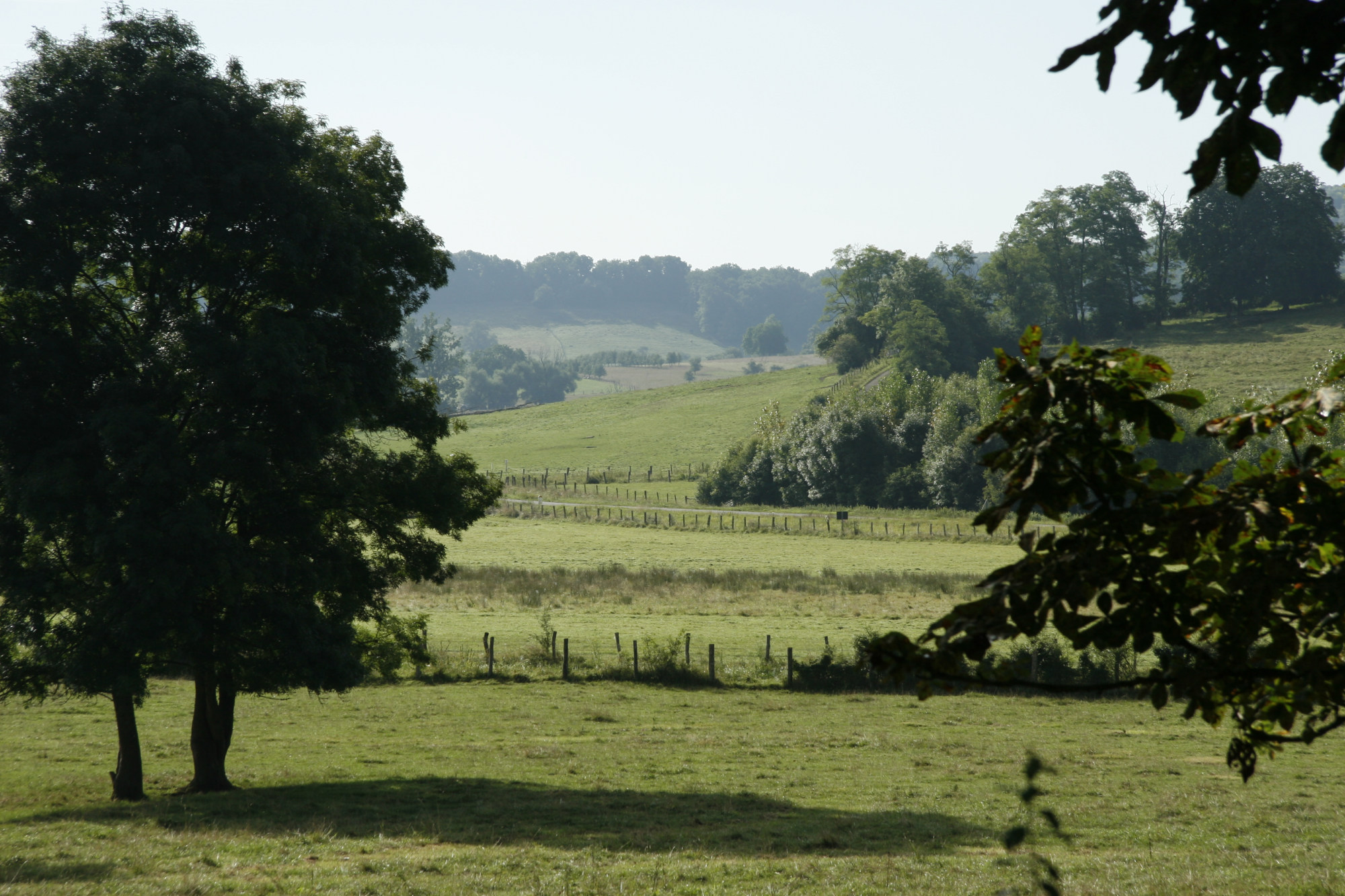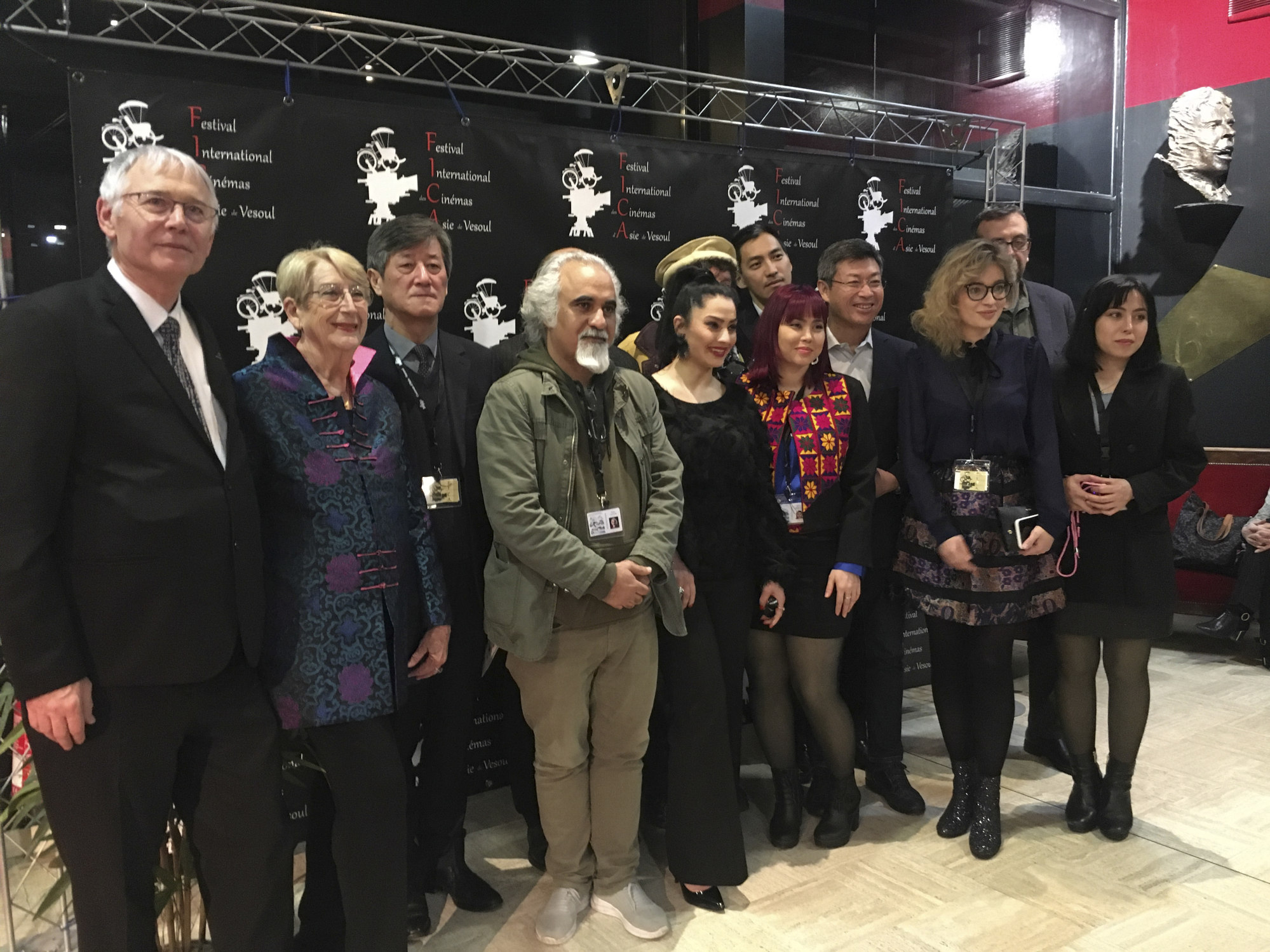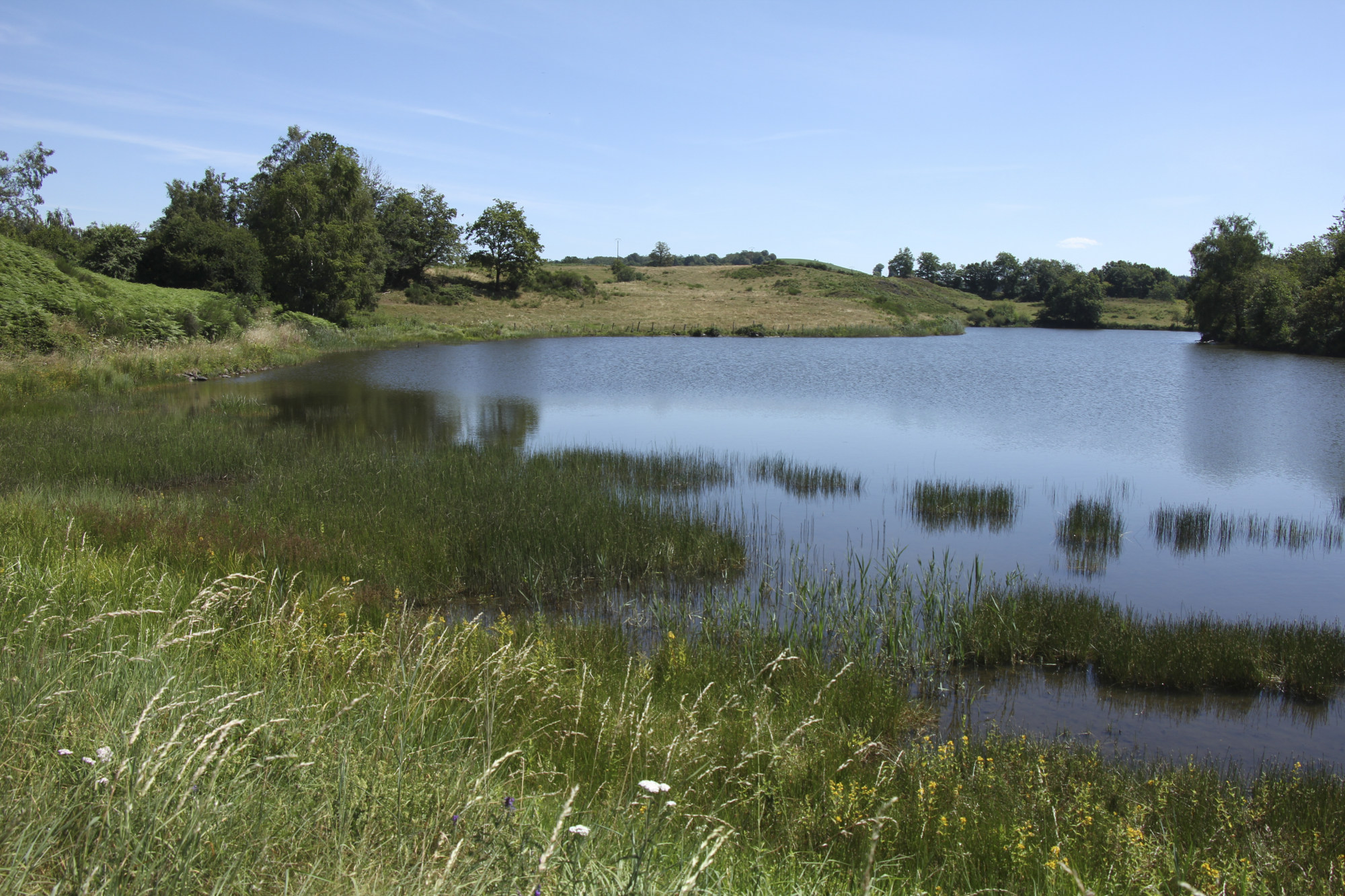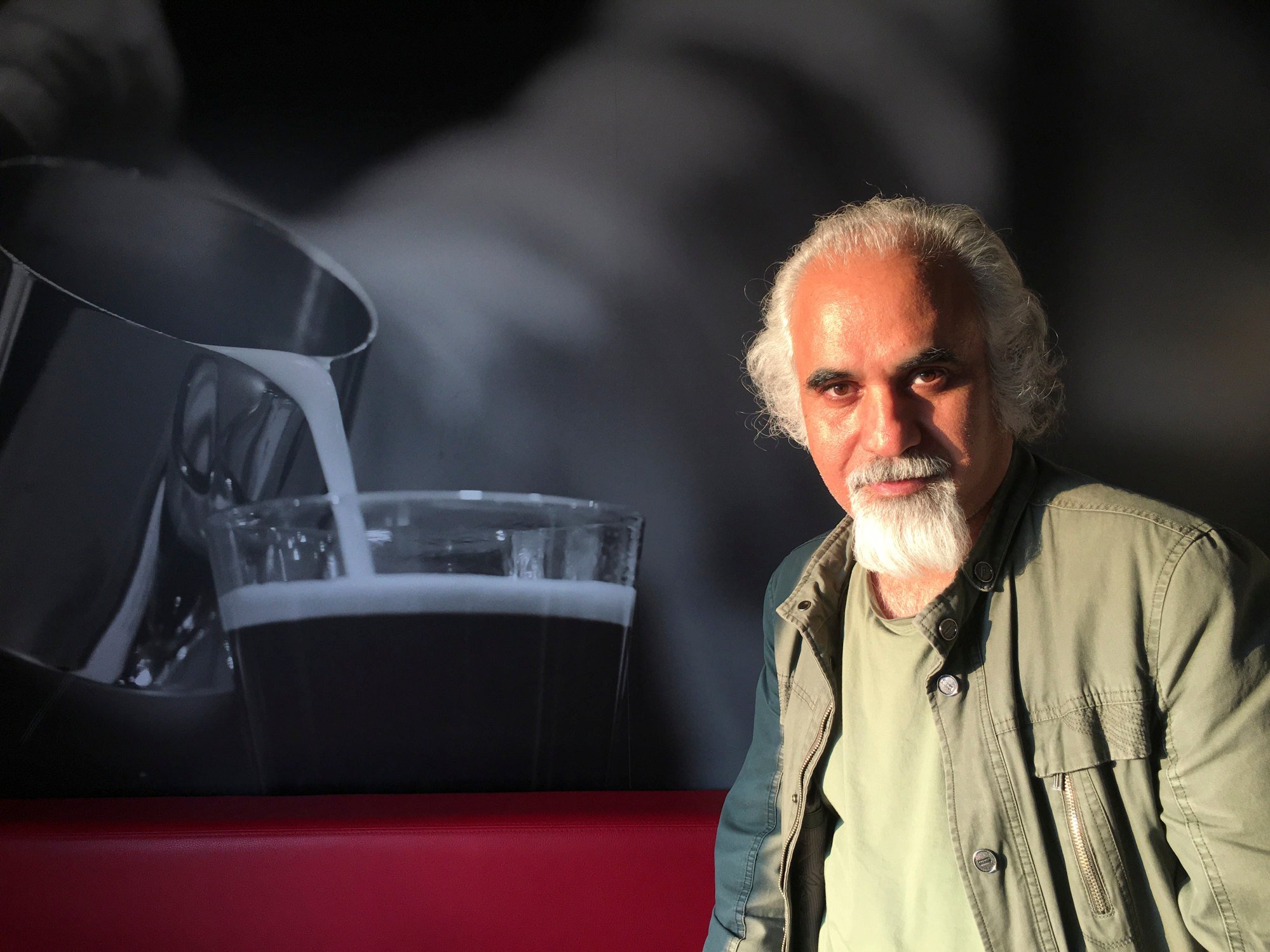
The Asian film festival in rural France few have heard of: cinema greats visit not just the cosy event, but also the charming countryside
- The sleepy town of Vesoul hosts an annual international film festival that sees the great and good of Asian cinema rub shoulders with cinephiles and locals
- The town is the perfect base from which to discover the Haute-Saône region and its spa towns, vineyards and a beautiful national park
It’s easy to get off France’s jammed autoroutes and head down winding lanes to discover what is still very much a bucolic, rural nation.
While tourists may be drawn to the glamour resorts and golden beaches of the Cote d’Azur, the French themselves will more likely be heading for a family trip into what everyone calls La France profonde.
Few destinations symbolise such rustic escapes better than sleepy Vesoul, in the rolling hills of the agricultural Haute-Saône region. A three-hour drive from Paris, the Haute-Saône nestles in between better-known Burgundy, Alsace and the Jura.
Grand chateaux and famous museums are few and far between here, so Haute-Saône holidaymakers indulge in more simple pleasures: boating on a tranquil lake; wild swimming in the fast-flowing waters of a secluded river; stopping off at farms to taste the local cheeses, Gruyère and Comté; and feasting on hearty dishes such as creamy chicken fricassee with juicy morel mushrooms, accompanied by a vin jaune from the vineyards of the Jura.

Vesoul is the capital, the perfect base from which to discover the Haute-Saône, and this solid little town of 15,000 inhabitants is famous throughout France, but only as the title of singer Jacques Brel’s most famous song, released in 1968. Ask people where Vesoul actually is and most will give a Gallic shrug and say they have no idea.
I have been spending my summer holidays here for years, visiting the extended farming family of my French wife and discovering some wonderful hidden secrets.
But I was surprised on a recent trip to find the town festooned with oriental decorations and colourful signs announcing the Vesoul International Film Festival of Asian Cinema (this year’s event ran from February 28 to March 7).
The local multiplex was screening 85 original-language Asian movies and renowned filmmakers from everywhere from China to India were hanging out in bistros and bars, animatedly discussing the merits of the latest art-house releases from Hong Kong, Singapore and Seoul.
Vesoul’s festival, known by its French acronym FICA, was founded in 1995 by Martine and Jean-Marc Thérouanne, professors at the local college and avid cinephiles. Their festival is a million miles from the glitzy Cannes and Venice’s La Mostra.
There are a couple of gala dinners, but no one comes to Vesoul expecting red carpet parades, dinner jackets and ball gowns, limousines and pushy paparazzi. Here, the stars have lunch and dinner together in local restaurants, some even walking the 20 minutes to get to screenings at the edge of town.

“This means the cineastes come face to face with their public, and that is what draws the stars of Asian cinema here,” explains Jean-Marc Thérouanne.
“I remember when we gave our top prize to Hong Kong director Stanley Kwan for the film Lan Yu. For some reason we did not get the chance to present the award, but then a couple of months later we were all at the Cannes Film Festival and Stanley asked us to present him the award at the glamorous Hong Kong film night on the Croisette.
“We ended up spending all evening with him and the stars of In The Mood For Love, Maggie Cheung and Tony Leung, as well as Michelle Yeoh. Today, Michelle may be at the Oscars […] but I’m sure she would love to come to Vesoul to experience a more human, down-to-earth festival.”

Everyone I speak to at the festival echoes such sentiments. Lee Yong-kwan, co-founder of Korea’s Busan International Film Festival, is attending Vesoul for the first time and declares: “As soon as a film screening starts, this peaceful, relaxed city suddenly comes alive with crowds of people lining up to see a subtitled movie. Not many places in the world where that can happen, I think.
“This is the first time I actually got here, with them inviting me as president of the jury. Well, I could not be more surprised as it is so beautiful, friendly, relaxed.
“This is what I wanted initially for Busan but from the first year, we got 200,000 visitors so automatically everything becomes more formal. Now I ask myself, ‘Why on earth didn’t I come to Vesoul sooner!’”

Lebanese director Vatche Boulghourjian enthuses, “It is so cool to discover such an out-of-the- way town like Vesoul, a place that is in the middle of the countryside, surrounded by rolling hills and meadows with grazing cows, whereas the historic centre, with its grand churches, mansions and museums, dates back to medieval times, when this must have been a much more important settlement.
“And the enthusiasm we all witness here for Asian cinema proves that the famous French passion for the cinema is no myth.”

Emily Hoe, head of the Singapore Film Festival, says, “After a few days enjoying the big city attractions of Paris I have to admit that Vesoul was a lot quieter than I expected. But I have been enchanted by the homely welcome we received – unpaid volunteers driving us around town, paparazzi who are just enthusiastic cinema-lovers and I even got asked for a selfie by a shopper when I nipped into the supermarket; not something the security guards would ever allow in Cannes.”
Every screening in Vesoul is sold out, suggesting France is in love with Asian cinema, and film distributor Vincent Paul-Boncour confirms that, “Cinemas all over France are now showing not just homages to icons of European and American movies – François Truffaut, Jean-Luc Godard, Billy Wilder – but Asian cinema greats, too, like Japan’s Yasujiro Ozu and Mike de Leon, from Manila, while I am just about to release Johnnie To’s Hong Kong classics, The Heroic Trio and Executioners. French film-goers will discover the early careers of Michelle Yeoh and Maggie Cheung.”

One of the stars of the festival this year is young Chinese director Liu Yulin, presenting her second film, In Our Prime, a gritty drama of daily struggles set in Shenzhen. Surprisingly, the film was shot mainly outdoors, without masks, during the Covid pandemic.
Despite an evening premiere, Liu jumps at the chance to come out for a day in the surrounding countryside.
Our first stop is nearby Luxeuil-les-Bains, a genteel spa town with palatial art deco thermal baths that also house a casino. Walking past the grand medieval mansions and turreted palaces that line Luxeuil’s main street, Liu tells me that although she is now based in Beijing, she has studied and worked in New York and loves to travel in Europe: “But this is not my home. I was born in China and it is the place I know best, with so many stories I want to tell the world about Chinese people and their culture.”

Next stop is the sleepy town of Fougerolles, famous for its orchards of black cherries, plums and pears, which are transformed into not just jams and sweet liqueurs but also fiery eau-de-vie alcohols.
At the Paul Devoille distillery, which has been making award-winning fruit brandies for more than 150 years, the owner takes Liu on a private tour: past giant copper distilling vats; up into the attic where the brandies are aged for years in glass demijohns wrapped in wicker; and into the botanical garden, where she is shown the plants and herbs used in the distillery’s secret recipe for absinthe, a spirit whose supposedly hallucinatory effects inspired artists such as Baudelaire and Rimbaud, Hemingway and Picasso.

As everyone returns to the tasting room to sip tiny glasses of black cherry brandy and milky-white absinthe, Liu says, specifically to Post Magazine readers: “I love to go to Hong Kong. But despite always having a great time each trip, I doubt I will make a film there, simply because I do not know it well enough. But what a paradise for food, as long as you have a local friend to take you to the best spots.
“As someone who does not speak Cantonese it can be difficult for me finding the best street food specialities, but I have two favourites; one for dim sum – Seventh Son Restaurant – one for Chinese dessert – Jia Jia.”
On the drive back to Vesoul, gazing out of the car window as the road winds through green hills and dense forests, she reflects on the familiarity of the town.
“It reminds me of my parents’ and grandparents’ home in West Old Village, a small hamlet in Henan province. The people in Vesoul are so touching and heartwarming, and it makes me happy to see they are contented to live in this beautiful corner of rural France yet remain open to the world when we all turn up for the film festival.”

And open they are; on each day of the festival, cinema lovers from across the region come not just to see the films, but also speak to the directors.
“People in Vesoul and all over the region have taken Asian cinema to their hearts, creating a meeting place, a love affair almost, between Asian filmmakers and French people, to share not just a passion for cinema but a curiosity for foreign cultures,” says Thérouanne.
When not interacting with local fans, the Asian attendees head off from Vesoul to visit attractions such as La Rochère, Europe’s oldest glassworks. In surroundings dating back to 1475, visitors watch the master glassmakers blow delicate vases and goblets.

Although nothing quite compares to a drive through the nearby national park, Ballon des Vosges. Hidden in the midst of towering forests of fragrant pine trees is a unique wetlands called Le Plateau des Mille Étangs. Created 12,000 years ago, when the Ice Age glaciers melted, there are actually 1,400 étangs, ranging from tiny ponds to shimmering lakes.
“This is such a unique biosphere that we are committed to allowing the public access but also to limiting the number of visitors to ensure it does not get spoilt,” says Nicolas Bonne, of the local tourism office. “So the ideal discovery is to go with one of our guides on an accompanied nature walk or bike ride.”

One event that will bring in the crowds, though, is the iconic Tour de France. This year, the cycle race will stage its penultimate stage in Ballon des Vosges, on July 22, before heading to Paris and the Champs-Elysées: a good reason to plan a summer trip to this under-the-radar corner of France, even if Asian films aren’t playing to packed audiences in Vesoul.
Adult content
The selection of films that played at this year’s Vesoul International Film Festival of Asian Cinema alongside Liu Yulin’s In Our Prime makes it clear that the organisers do not shy away from controversy.
Ken Kwek’s #LookAtMe is banned in his native Singapore, while the rights of Afghan women are frequently championed by jury member Marina Golbahari, who shot to international fame as a child actor playing the title role in the 2003 film Osama, about a girl forced to dress as a boy to find work to support her family in Taliban-run Afghanistan.

Intense Iranian film No End has received several awards for its depiction of the relentless, almost Kafkaesque persecution of individuals in Tehran by the secret police. A conversation with its director, Nader Saeivar, over breakfast in his Vesoul hotel is no light affair.

“When I arrive home at the airport, yes, I could be arrested and taken to prison. Am I worried? This is not the issue, as I have taken a choice to make statements in my film and I know what the consequences may be. So I live with that by living for each day as it comes.”

